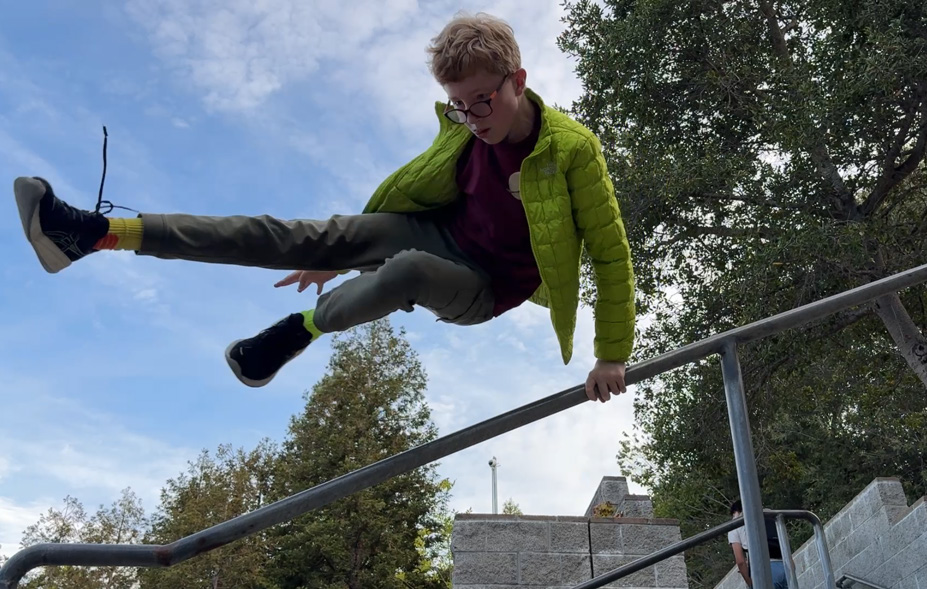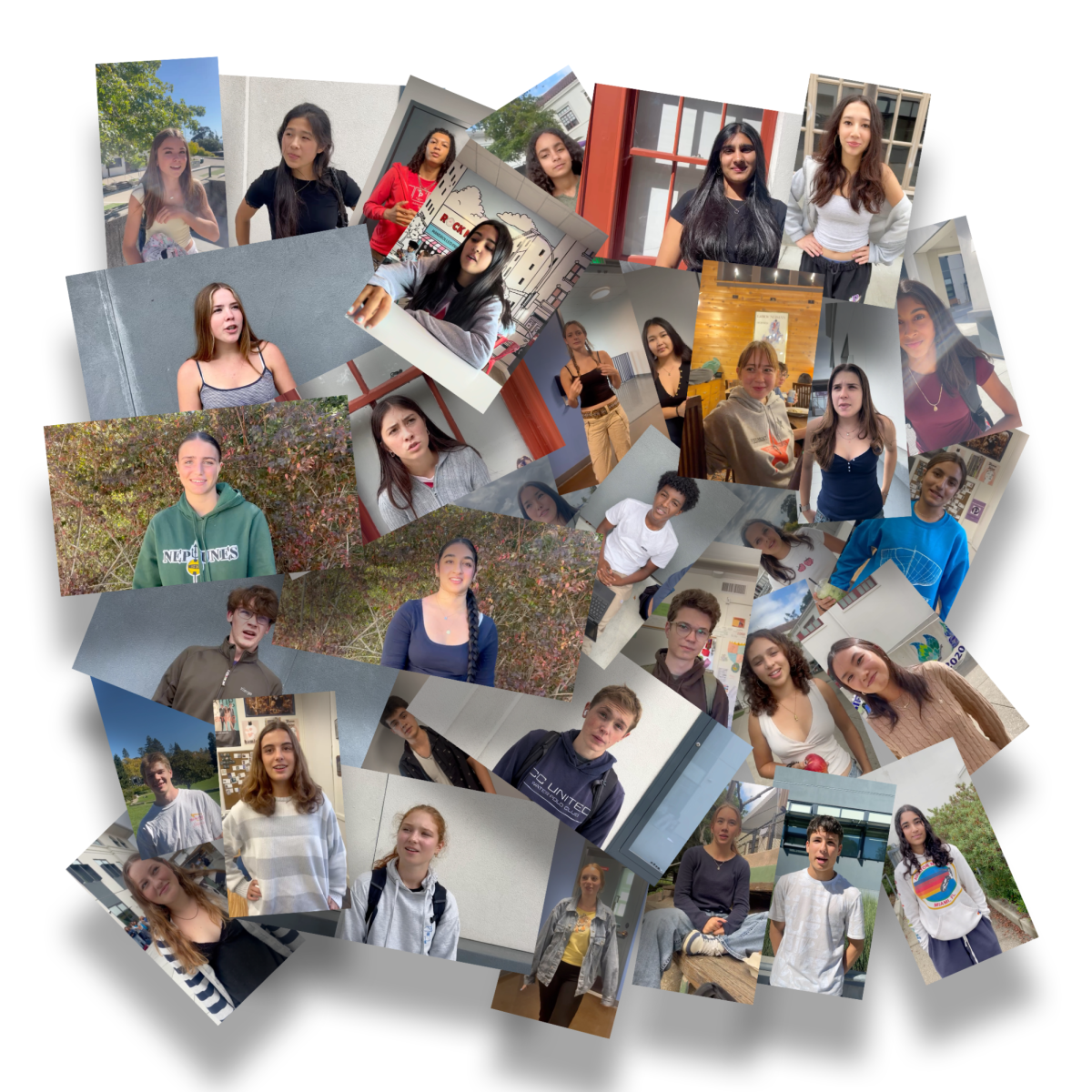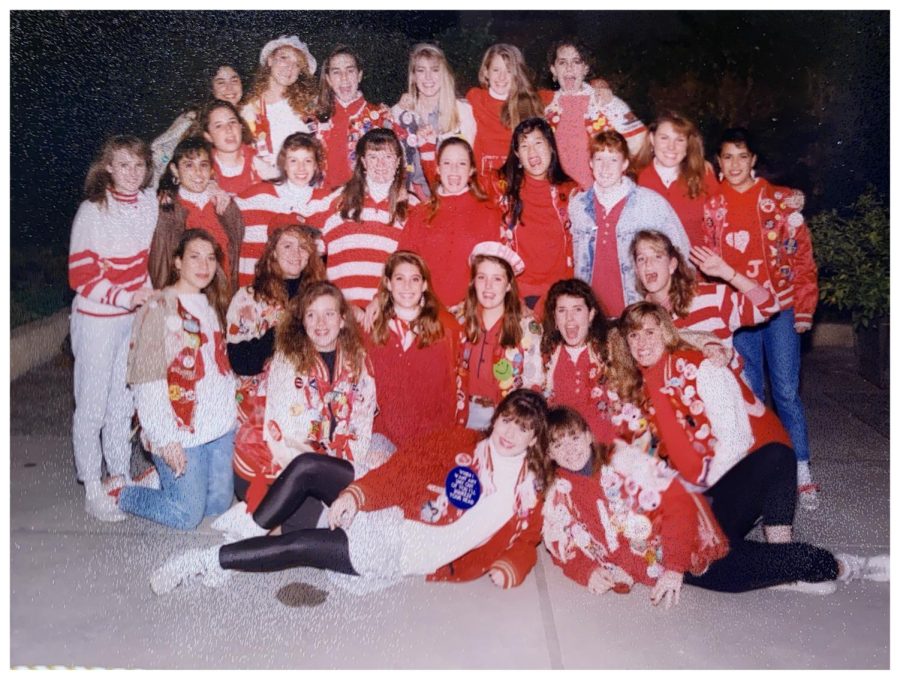Uncovering the Social Clubs of Piedmont’s Past
Photo courtesy of Franki Davies
A gathering of JA’s
Feb 18, 2023
Darwin’s Theory of Evolution: things can change over time, but they all share a common ancestor. Piedmont’s Social Clubs, originally wholesome and communal, evolved to become exclusive and undercover in their later years. They kept the same names throughout the years, but their focus transformed.
Piedmont’s social clubs were founded around 1921 and disappeared around the early 2000’s. They dictated the party scene and recruited students to their cryptically named groups.
Junior Organization (JO), Junior Assistance (JA), and Baby Hospital (BH), were the three women’s social clubs, named after the charities and causes they were dedicated to. The original mission of these clubs was to raise money for charity through events such as fashion shows.
Rigma and Kimmer were the two men’s social clubs, with the Kapa Klan dying out before the 1990s. The club name Rigma came from the alliteration of “all men grow in righteousness,” but backwards, according to historyofpiedmont.com.
The men’s clubs were founded to promote good-fellowship and work that benefited the community, according to the 1923 PHS yearbook.
Piedmont was not the only school with social clubs at the time; Berkeley High School and Alameda High School also participated in fraternal clubs, according to The Oakland Tribune.
Recruitment was exclusive, and many students were deterred from joining because it was invitation only, said Mary Cutler, class of 1992 and former BH.
During the second semester of their sophomore years, girls clubs would offer only four bids per club. On bid day, caravans of cars with upperclassman members would joyride through town before dawn, honking horns, yelling, and chanting, before pounding on the door of a “first four”, said Franki Davies, class of 1991, and former member of JA.
Girls were then required to sit on their porch all day until active members came back to swoop them up for a night out.
Unlike the girls’ social clubs, boys would get recruited through activities such as football, according to a member of the class of 1993 and former Rigma.
Once recruited, initiation would ensue.
“The new people would be initiated, and you would have something called Hell Week. You had older sisters that gave you instructions about what you had to do every day of that week,” Davies said, “For example, Monday they [would say] you need to dress like a baby, you need to bring me hot chocolate chip cookies fifth period, and you need to bring my boyfriend a pack of cigarettes at his baseball practice.”
At the end of the Hell Week, which wasn’t condemned by the school, Davies said, Hell Day would commence.
“They took all of the biddies (girls recently bid into the club) to Bear Park,” Davies said, “and lined them all up on the ground, and they took mustard and ketchup and soy sauce and oil [and poured it on them] and then they had to run around town with this stuff all over them.”
Davies said the men’s social clubs would haze differently than the girls, and took care to keep their practices under wraps.
“We heard what the boys did but no one was ever allowed to witness it. But, we snuck into [a male member’s] house,” Davies said.
The boys would take wooden paddles with holes (so they were more aerodynamic) and swat at the new recruits’ bare butts until they fell into a pool, Davies said. These were called “wacks”.
“It’s high school and at the time you’re trying to find your way and make friends and this was sort of the deal at the time,” a former Rigma said.
In the 1990s, the initiates would have to run naked through Piedmont Park, and once, there happened to be an adult volleyball practice, according to the former Rigma.
Earlier, in the 1930s, boys would drive to the cemetery and make pledges get on top of monuments and moo like an elk, according to The Living and the Dead, Robert McNamara and Five Lives of a Lost War by Paul Hendrickson. The Undie 500 was an event where pledges would run from Hampton Field to Convenient (currently Mulberry’s) while members in bushes would try to tear their underwear off, according to The Patch.
To Cutler, being in a social club functioned like a sports team or a friend group.
“I didn’t play sports, so that was sort of my way to get to know [upperclassmen],” Cutler said. “I really didn’t think much about how it was leaving people out. But certainly as a parent now, I do think about that.”
Piedmont’s social clubs were established as both social and charitable organizations, and all groups definitely partied, Cutler said. Groups would gather at a field near Caldecott Tunnel in the afternoon, and even have “beer pools” almost every Friday where students would party at someone’s house during lunch.
Clubs would host their annual themed party at either a house or a warehouse, with one of the later themes being “Pimps and Hoes”, where boys would dress up as pimps, and girls would dress up as hoes, according to a PHS 2002 graduate who was not a part of the social club scene.
When asked, club alumni still reminisce about the enjoyment the clubs brought them.
“It was really fun and silly and it definitely took a lot of time away from my studies. But truly, if you watch Dazed and Confused, that’s what it was like,” Cutler said.
“I don’t look back on it and regret being a part of it. Again, a lot of my friends were in one of the clubs [and] we all had a good time, at least that’s my recollection of it,” the former Rigma said.
In reflection, both Cutler and Davies agree the concept of these high school clubs was dated and hurtful, and both have hopes that they will never return to Piedmont High School.
“I would say it was definitely something that was hearken to the 50s and clearly needed to go. In retrospect, I would be horrified if [current students] took part in anything like that,” Davies said.
Although the clubs may not translate to Piedmont in the 21st century, members still appreciate their experiences.
“I’ve heard parents say they’re glad they’re gone. But I had some really good times and they were my best friends. I also had best friends in JA and the other clubs too. But I think it just outgrew the times. I would be shocked if it came back,” Cutler said.
However, Davies thinks there could be a resemblance to these clubs currently at Piedmont.
“[I think] it’s kind of the sports [teams] that took over what this was, this bonding,” Davies said.






























